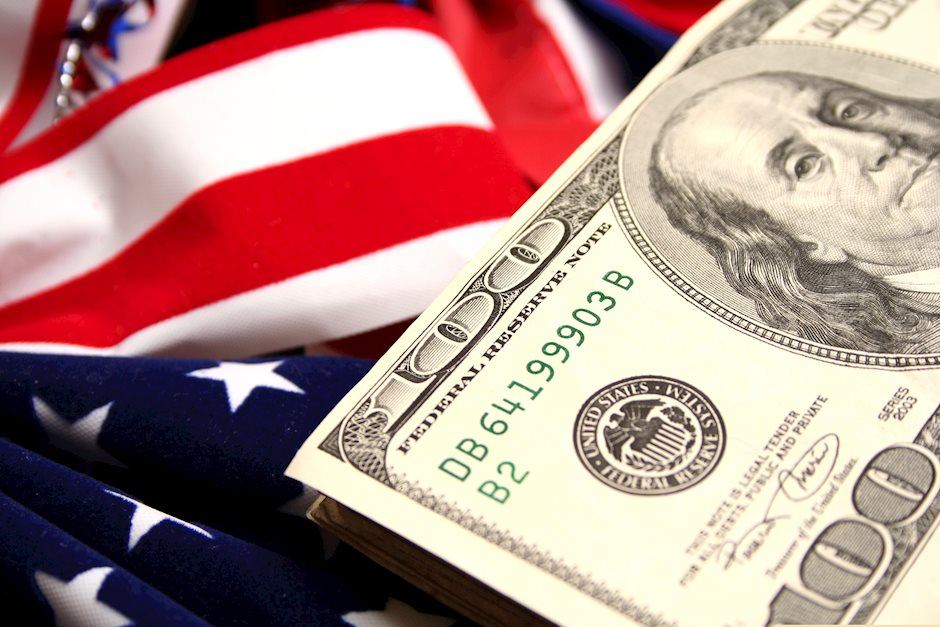Is the Biden administration trying to destroy the Dollar?

Confidence in Western financial markets has already been shaken enough by the 20% devaluation of the dollar over the last few years. But now the European Commission wants to hand Ukraine $300 billion seized from Russia. Doing so likely would sound the death knell for the dollar and eventually the euro.
Treasury Secretary Janet Yellen, who has worked for literally decades to undermine the strength of the dollar, recently urged world leaders to take this disastrous step of outright theft.
But financial leaders worldwide, including those who adamantly support Ukraine, are sounding the alarm, citing the unprecedented fallout that would stem from further violating the sacrosanct nature of the dollar.
When Russia invaded Ukraine two years ago, the U.S. and its European allies seized $300 billion in Russian Central Bank assets. Relative to the size of the Russian economy, that’s the equivalent of $4 trillion in U.S. financial holdings.
The goal was to instigate panic in Russian markets, culminating in bank runs and general unrest, perhaps even leading to the ouster of President Vladimir Putin himself. It didn’t work.
Instead, American banks had a cliffhanging spring last year that included the collapse of Silicon Valley, Signature and Silvergate banks, while countless regional banks held on thanks to emergency loans from the Federal Reserve.
Apparently not content with sowing chaos in domestic financial markets, the federal government’s push to steal Russian financial assets would plant the seeds of pandemonium abroad.
The European Union is in lockstep with the Biden administration’s plan to transfer the frozen Russian assets to Ukraine to buy weapons—which, of course, would be sold by the EU and the U.S.
Some member states of the EU want to just hand over all $300 billion instantly to the corrupt oligarchs in Ukraine. Others want to start with just the interest payments accruing on these financial assets. (Of course, the frozen assets aren’t actually accruing interest now, so any payments to Ukraine would actually be more deficit spending by Western governments.)
Just sending the interest payments would be crossing a terrible threshold, further violating financial custodial agreements of dollar- and euro-denominated assets.
The message from the EU and the Biden administration is crystal clear: Western financial markets are now a dangerous place to park your money. This could fatally undermine global confidence in American and European financial management because the safety of your assets will have become dependent upon your standing in Washington and Brussels.
That’s a concern for corporations, but it could be an existential threat to countries that own a large share of international financial assets. The ever-present threat of theft, couched as financial sanctions, means nations effectively lose their autonomy, forced to kowtow to the whims of American and European bureaucrats.
The Biden administration has already threatened sanctions on Uganda over its LGBTQ policy, but that’s just the beginning. Similarly punitive financial ideas have been floated regarding abortion and environmental policies.
Now sanctions are becoming just the first step to seizing all of a country’s financial assets, and the rest of the world is waking up to the racket.
A few months ago, the Indonesian president gave a speech saying his country needed to diversify its dollar holdings and dollar-denominated assets, ominously citing, “Look what happened to Russia.” The Federal Reserve recently refused to disclose how much foreign exchange reserves and gold have been withdrawn from the United States since the Russian asset seizure.
The de-dollarization trend is decades old, a result of dysfunctional government crippling economic growth while inflation erodes the currency’s value. The dollar fell from 73% of currency reserves to 55% in 2021, but the seizure of Russian financial assets gave this trend a shove into overdrive.
The dollar’s share of currency reserve plummeted another 8 percentage points in just two years, falling to 47% in 2023.
It’s not just reserves, but international trade, too. Brazil has begun conducting some of its trade in Chinese yuan, and projections are for China’s share of trade to triple in the next decade. Other countries, including their central banks, are divesting their dollar holdings, preferring gold or other real assets.
The Fed’s interest rate increases have buoyed the dollar, but that is poised to reverse as the central bank readies a pivot to interest rate cuts in this election year.
Similarly, the turmoil around the globe has prompted a “flight to safety” where investors buy assets perceived to be safe, such as U.S. Treasuries. But the talk of seizing foreigners’ assets is exposing these dollar-denominated loans as less than safe. Indeed, they’re more of a liability.
If the people running our country were intentionally trying to destroy the dollar, it’s not clear what they would be doing differently.
To receive free commentary and analysis on the gold and silver markets, click here to be added to the Money Metals news service.
Author

Peter St. Onge, PhD
Money Metals Exchange
Peter St. Onge writes articles about Economics and Freedom. He's an economist at the Heritage Foundation, a Fellow at the Mises Institute, and a former professor at Taiwan’s Feng Chia University. His website is www.ProfStOnge.com.

















